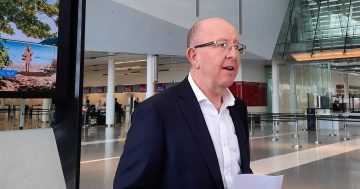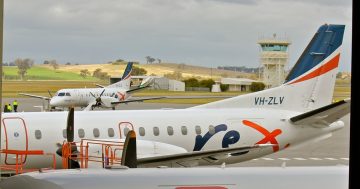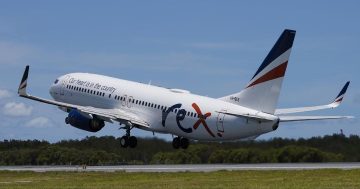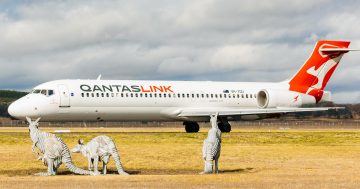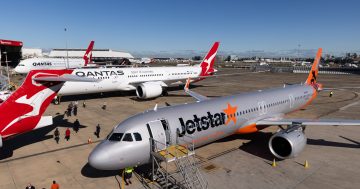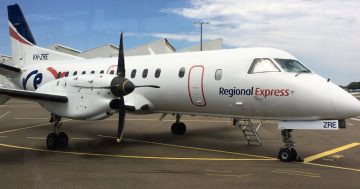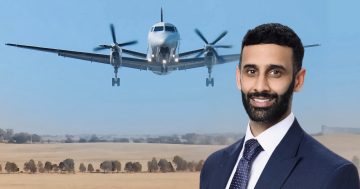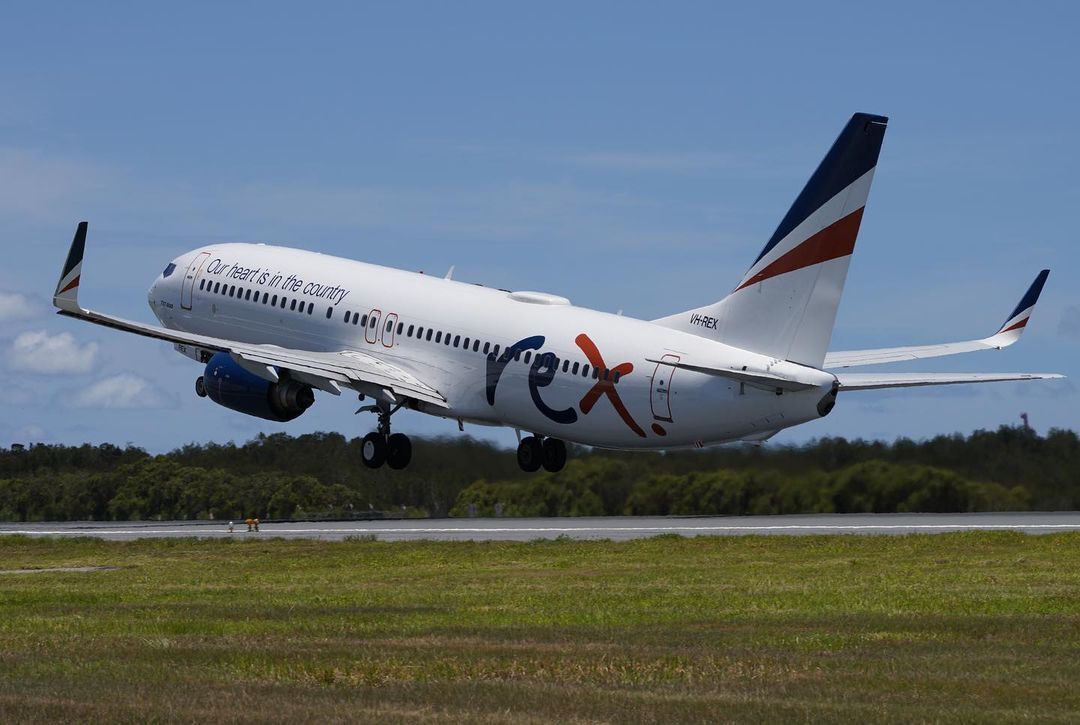
Qantas may have contributed to the demise of Rex, but the flying public can’t escape blame either. Photo: Rex.
Who’s to blame for the latest challenge to Australia’s air duopoly to go belly up?
Taking on Qantas and Virgin was a brave, and some might say in hindsight foolish move for Regional Express (Rex).
The clue was in its name, they say. If only it had stuck to its main mission of servicing regional Australia.
Poppycock, says former competition boss Rod Sims.
This was the result of a continuing policy failure that is costing Australian travellers plenty, as well as locking out those who can’t afford the fares the big two charge.
Sims says the ability of Qantas and Virgin to hoard slots at Sydney Airport, in effect, kept the likes of Rex out of the game.
The controversial “80/20 rule”, which allows airlines to keep a take-off slot indefinitely provided they operate it at least 80 per cent of the time, survived the Federal Government reforms in February, which were supposed to provide more transparency and accountability.
Sims says the system remains rigged in favour of the big airlines thanks to Airport Coordination Australia (ACA), the company responsible for slot management at Sydney Airport, being run by Qantas, Virgin, the Regional Aviation Association of Australia, and the airport itself.
“The government outsources the management of the slots at Sydney Airport to a company that’s majority owned by Qantas and Virgin. I mean, it is just unbelievable,” he told the ABC.
“So when Rex – or indeed Bonza, who also wanted extra slots at Sydney Airport – want those key slots that they must have to be viable, they have to go and essentially ask for them from Qantas and Virgin. And, of course, they’ve also got to put their business plans before them.”
The government has set the system up for failure, he says.
Sims is adamant that Australia can sustain a third airline, particularly in the so-called golden triangle of Brisbane, Sydney and Melbourne.
“We certainly can have more than two airlines on these capital cities routes, certainly on the Melbourne-Sydney route. But public policy is simply stopping that happening, and I don’t know why,” Sims said.
“All evidence shows that when you have three airlines flying a route, the prices are much lower. It’s just unquestionable that that’s the case. So why the government doesn’t change the policy levers to bring that about, I really do not understand.”
There’s no doubt as well that Qantas, in particular, can bring the full weight of its power to bear against any new entrant and is not shy about doing that.
Remember, this is also a private company still trading off its long-faded national carrier status that took billions of taxpayer money during the pandemic and returned the favour by gouging customers, restricting capacity and cancelling flights when it suited it.
Rex is but the latest in a long line of airline pretenders that ran out of puff, and in the end, Australian travellers, especially those who fly the most, have to share some of the blame.
I remember taking a Rex flight from Canberra to Melbourne last year. It was way cheaper than Qantas or Virgin, at a convenient time and was on schedule.
I expected it to be full. I was wrong.
Obviously, other factors were at play.
Maybe price was not the consideration for other more frequent flyers than myself.
Perhaps sticking with a brand and accumulating frequent flyer points also mattered.
Those travelling for business, including public servants and politicians who regularly fly out of and into the national capital, seem to prefer Qantas.
This is despite the APS’s best fare requirement, which it pays lip service to.
So, in the end, not enough people buy enough tickets – and that’s not viable.
What is viable and vital is the actual regional side of the business.
The government may not want to throw a bucket of money at Rex to save the capital city routes, but it should do all it can to keep those planes servicing the regions flying.
Regional politicians such as Riverina MP and former transport minister Michael McCormack said the government needs to step up with a financial package.
Apparently, there is no shortage of potential buyers for Rex, according to the administrators, so it may not have to.
The answer, some say, is for a strong international airline like Qatar Airways to invest in Virgin and swallow Rex to reinvigorate the Qantas rival and keep the regional network flying.
Qatar also wants more landing rights in Australia, something the Federal Government has so far refused despite industry observers saying this would be a winner for Australian travellers.
That would include Canberra, which has been awaiting the return of Qatar since the pandemic.
Rex’s demise could end up being the catalyst for a transformation of the Australian market.
But first things first. The regions’ access to regular flight services must be maintained.












